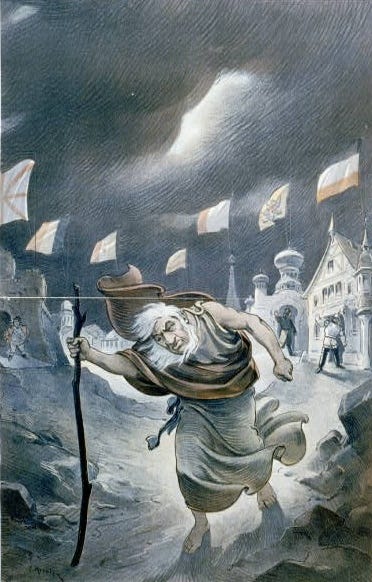Jewish historians can be quite selective about which topics they discuss, and which they brush under the carpet. Very few history books discuss the phenomenon of the Betteljuden, groups of impoverished, homeless Jews who wandered across Europe in the 18th century, sometimes resorting to low level crime in order to survive.
The hardships of life in Poland, and the prospect of economic opportunities abroad had always caused some Polish Jews to emigrate, but by the middle of the 18th century the trickle of those departing was beginning to seem much more like a flood. The political situation in Poland was deteriorating, taxes imposed specifically upon Jews were increasing, while Cossack riots and pogroms appeared never ending. A leading Polish rabbi, Pinchas Horowitz, who was convinced that the social fabric of Polish life was collapsing applied for a job in Frankfurt. He considered himself fortunate to have been accepted. The philosopher Solomon Maimon also left Poland, hoping to study in Berlin. However he was not allowed to enter the city and ended up as a wanderer. “To stay alive,” he wrote, “I was compelled to become a vagrant in a strange land.”
Yet Maimon was one of the fortunate ones; he was sufficiently educated and ambitious to overcome his difficulties and to eventually establish a reputation for himself as one of the most leading thinkers of his generation. His wandering years were relatively few.
Most wandering Jews were not so lucky. The name applied to them, Betteljuden, means Beggar Jews, a dismissive but accurate description of the lives they lived. Yet they were not all beggars. Some were peddlers who spent much of their life on the road, trying to earn enough money to send home to their wives and children back in Poland. Others were travelling craftsmen or agricultural workers, again trying to support a family they rarely had time to see. Several were entire families trying to make their way to a better life in the west but without the money to buy a passage.



